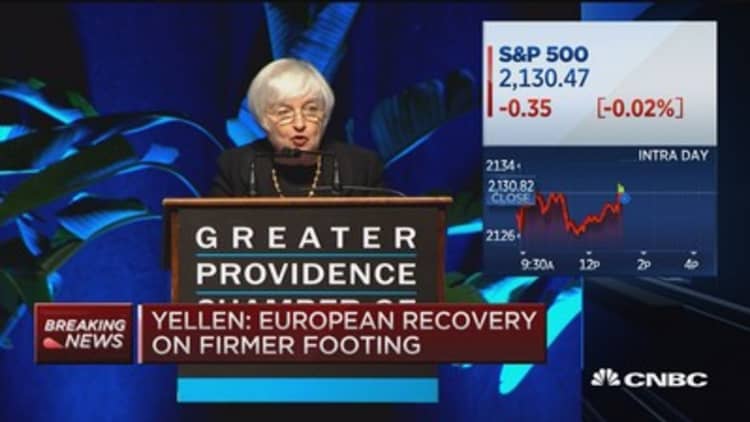
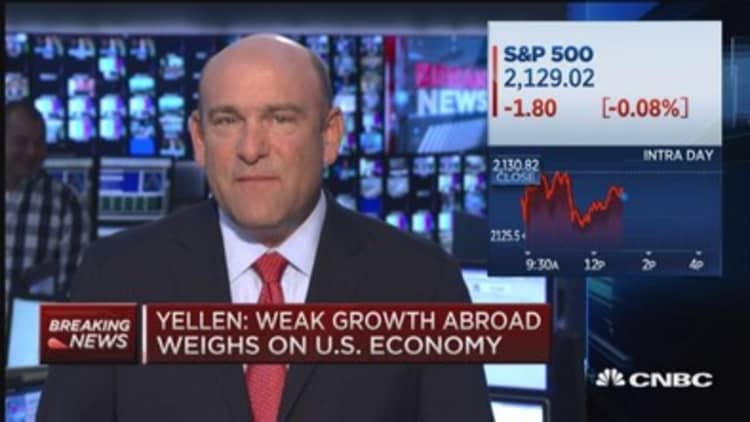
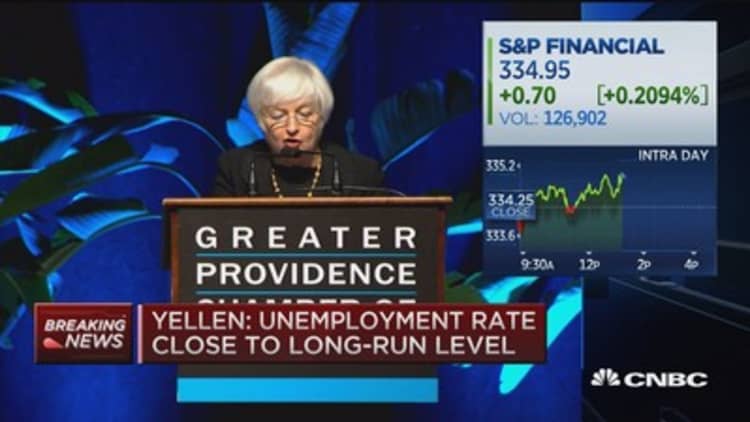
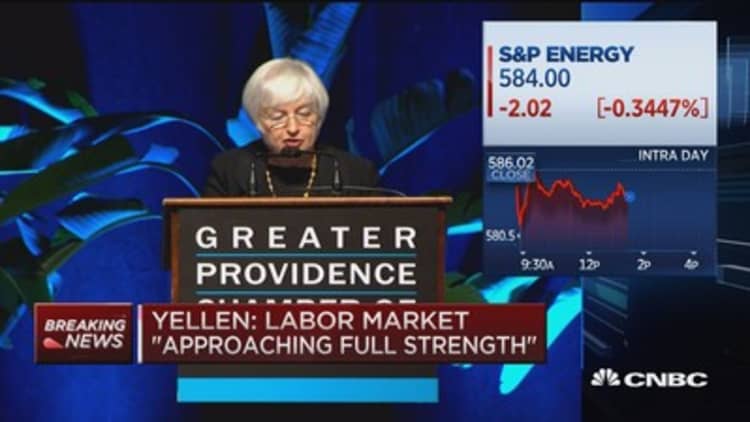
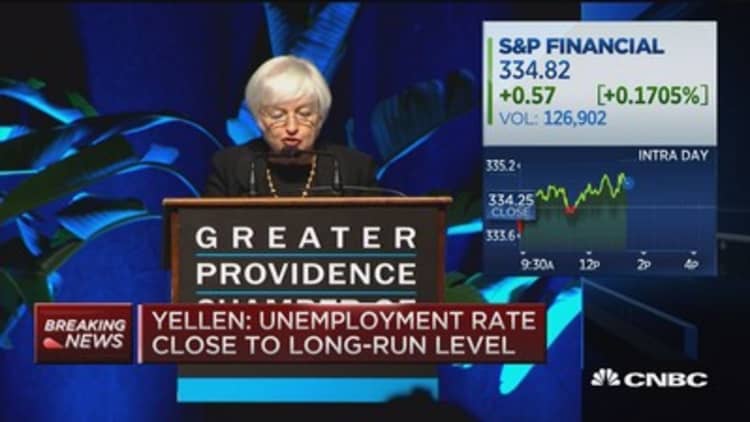
A U.S. interest rate hike will be appropriate this year if the economy improves, Fed Chair Janet Yellen said Friday.
The central banker, who delivered a speech to the Greater Providence Chamber of Commerce, said that the pace of increases will be gradual, and that it will take several years for rates to normalize. Still, she said her expectations indicate that a rate increase may occur this year.
"If the economy continues to improve as I expect, I think it will be appropriate at some point this year to take the initial step to raise the federal funds rate target and begin the process of normalizing monetary policy," she said. "To support taking this step, though, I will need to see continued improvement in labor market conditions, and I will need to be reasonably confident that inflation will move back to 2 percent over the medium term."
Yellen acknowledge recent economic sluggishness, but said that the first-quarter slowdown was largely transitory. She added that she expects U.S. economic data will improve.
The Fed chair predicted moderate growth this year and beyond, explaining that economic headwinds are waning.
U.S. stocks moved slightly higher after headlines from Yellen's speech.
Turning to the labor market, Yellen said it is "approaching full strength," and that unemployment should fall to near 5 percent by the end of the year.
She cited the fact that more are quitting their jobs as evidence that people have "greater confidence in their ability to find a new job."
Still, Yellen said continued low wage growth shows that the labor market is "not fully healed" despite unemployment approaching its long-run level.
"Higher wages raise costs for employers of costs, but they also boost the spending and confidence of consumers, and would signal a strengthening of the recovery that would ultimately be good for business," she explained, adding "nationally there're at least some encouraging signs of a pick up so far this year."
Read MoreWhy traders were watching Yellen's speech
Pointing to highly publicized wage increases at Target and Wal-Mart, Yellen said this news "also might be a sign that larger wage gains are on the horizon."
Hours ahead of her speech inflation showed a flicker of life, with the consumer price index, once stripped of volatile food and energy components, recording a 0.3 percent rise in April.
Though the Fed uses another measure for its 2 percent target, the CPI report on Friday showed prices increasing across a broad set of items.
Yellen did not appear to give much consideration to that report in her address, saying that inflation remains below the Fed's target, and predicting that it will rise as the economy strengthens and temporary factors recede.
The central banker did acknowledge, however, that weak growth abroad has weighed on the U.S. economy, but she said that Europe appears to be on firmer footing.
Read MoreUS consumer prices soft, underlying inflation pushes up
"The tone of the speech is that we're still data-dependent and the progress so far in the economy does not justify an immediate move," Paul Christopher, chief international strategist at Wells Fargo Advisors, told Reuters. "She's mentioning the international economy by way of reinforcing her point that there's still plenty of weakness perceived or possible around the world."
The Fed has kept rates near zero since 2008 and bought $3.5 trillion in bonds to pull the economy from a recession that had sent joblessness as high as 10 percent.
Unemployment has now been cut almost in half and runs near estimates of full employment, and monthly jobs growth so far this year has averaged 194,000. On Thursday, unemployment claims reinforced the labor market's resilience.
Read MoreFed minutes can hinder policy debate: Willams
While inflation is below target, oil prices are off their lows and the soaring dollar has come down from peaks scaled in March, which should support U.S. prices.
To be sure, the harsh winter, strong dollar, a seaport labor dispute and cuts in energy-sector spending could show the economy actually contracted in the first quarter after preliminary data said it grew by a puny 0.2 percent. Some of that gloom lingers on, with unexpected weakness in consumer spending, business investment, and a growing trade deficit fueling concerns that the Fed's "liftoff" could be pushed back, possibly until sometime next year.
A New York Fed survey of primary dealers showed the majority still expected the central bank to raise rates this year, but expectations shifted toward September and December compared with the previous February poll where still nearly a third bet on a June liftoff.
—Reuters contributed to this report.


